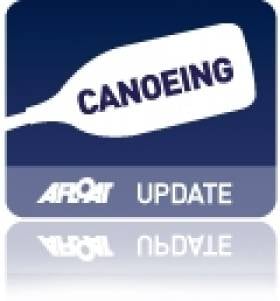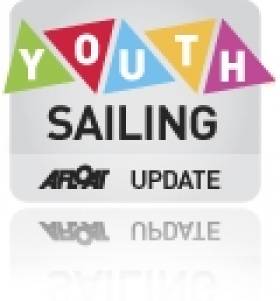Displaying items by tag: UL
UL Take Title at Irish Kayaking Intervarsities
#KAYAKING - The University of Limerick were overall winners in the 2012 Irish Kayaking Intervarsities at GMIT Castlebar last weekend.
As the Mayo Advertiser reports, some 500 students were on hand for the three days of competition, which kicked off with canoe polo on Lough Conn (won by GMIT over DCU).
Saturday's action saw the whitewater contest on the Clydagh River, with Limerick emerging on top, and the freestyle event on the River Clare at Tuam Wave.
Sunday closed with the long distance event at Lough Lannagh, which clinched the weekend for UL's kayakers.
Mayo also hosted the Irish Intervarsity Sailing Championships in Rosmoney last week, which attracting 200 students to the Westport area.
Irish Team Ready for Student Yachting World Cup
Yesterday marked the beginning of the 30th Student Yachting World Cup (SYWoC), and for the Irish Team, it was the first opportunity for some of them to check out La Rochelle. This year's Team Ireland consists of a joint effort between UL, LIT and UCC.
The team consists of Skipper Robert O'Leary(UCC), Cian Gallagher (UL), John Blake (UL), Dee O'Rourke (LIT), Lisa Dann (UCC), Caitlin Cuppage (UCC), Shane Newman (UL), Peadar O'Suilleabhain (UL), Jamie Donegan (UCC). The team will race with 6 or 7 up depending on the weather for the week, currently the forecast is looking quite light. Not what was expected for this time of year in La Rochelle.
After an early start at 7am this morning, the team travelled to the Societé de Regatis Rochelouies, the club which hosted the very first SYWoC in 1979. And which is SYWoC's base for the week.
A practice race was scheduled for 2pm, after a general briefing at 1pm. However, with wind gusting over 30kts, the race organisers decided that it was not worth risking the fleet with 6 days of racing ahead. The teams will be given an hour prior to racing tomorrow to put the final preparations on their 2010 SYWoC campaigns.
Team Ireland will hope to keep the title of a force to be reckoned with, after all the past 4 SYWoC campaigns for Ireland have had results of a 1st (Trinity - 2006), 2nd (CIT - 2007), 1st (CIT - 2008), 4th (CIT - 2009).






























































